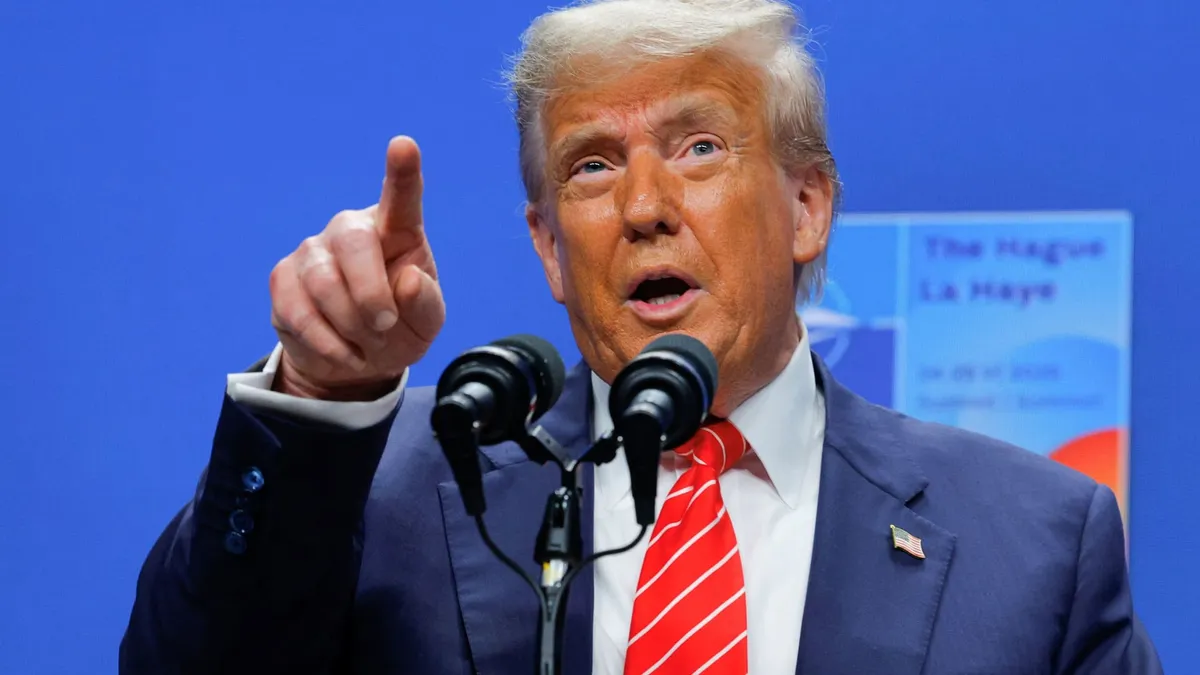
During a recent press conference at NATO's annual summit held in the Netherlands, U.S. President Donald Trump expressed his discontent with Spain's refusal to meet the NATO defense spending target of 5% of its gross domestic product (GDP). This refusal, according to Trump, could lead to a more challenging trade relationship for the southern European nation.
Trump highlighted that despite Spain's strong economic performance, it was unacceptable for the country not to commit to the NATO spending goal by the year 2035. He remarked, “You know they are doing very well. The economy is doing very well. And that economy could be blown right out of the water with something bad happening.” This statement underscores the importance of national defense spending in maintaining economic stability.
In a bold declaration, Trump stated, “What we're going to do? We're negotiating with Spain on a trade deal and we're going to make them pay twice as much — and I'm actually serious about that.” His comments reflect a growing frustration with Spain's defense spending lag, as he affirmed that “it's unfair” for Spain to seek a “free ride” while other NATO members commit to increased military expenditures.
Trump's remarks come on the heels of significant decisions made by NATO allies, who have recently agreed to raise their defense spending target from the previous 2% of GDP to a new target of 5% by 2035. In a joint declaration, NATO member states emphasized their unity in addressing profound security threats, particularly the long-term challenges posed by Russia and the enduring risk of terrorism.
The NATO summit underscored the alliance's commitment to collective defense and the necessity for all member nations, including Spain, to contribute fairly. Trump's insistence on ensuring that Spain meets its obligations reflects a broader strategy aimed at reinforcing military readiness and alliance solidarity among NATO countries.
As the NATO landscape evolves, Spain's decisions regarding defense spending will continue to attract scrutiny, particularly as the alliance prepares for future challenges in a complex global security environment.